Journal Articles
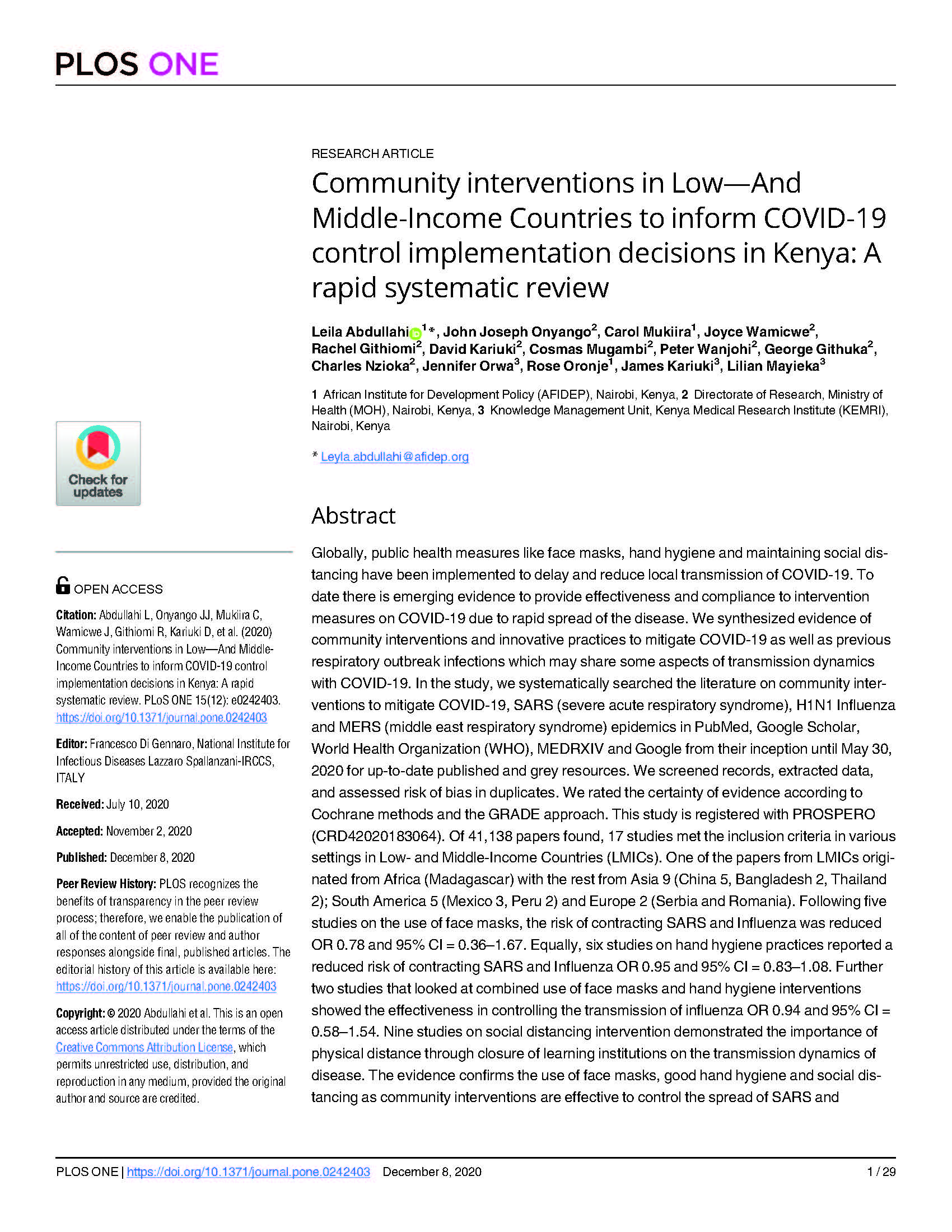
Globally, public health measures like face masks, hand hygiene and maintaining social distancing have been implemented to delay and reduce local transmission of COVID-19. To date there is emerging evidence to provide effectiveness and compliance to intervention measures on COVID-19 due to rapid spread of the disease. The study synthesised evidence of community interventions and innovative practices to mitigate COVID-19 as well as previous respiratory outbreak infections which may share some aspects of transmission dynamics with COVID-19.
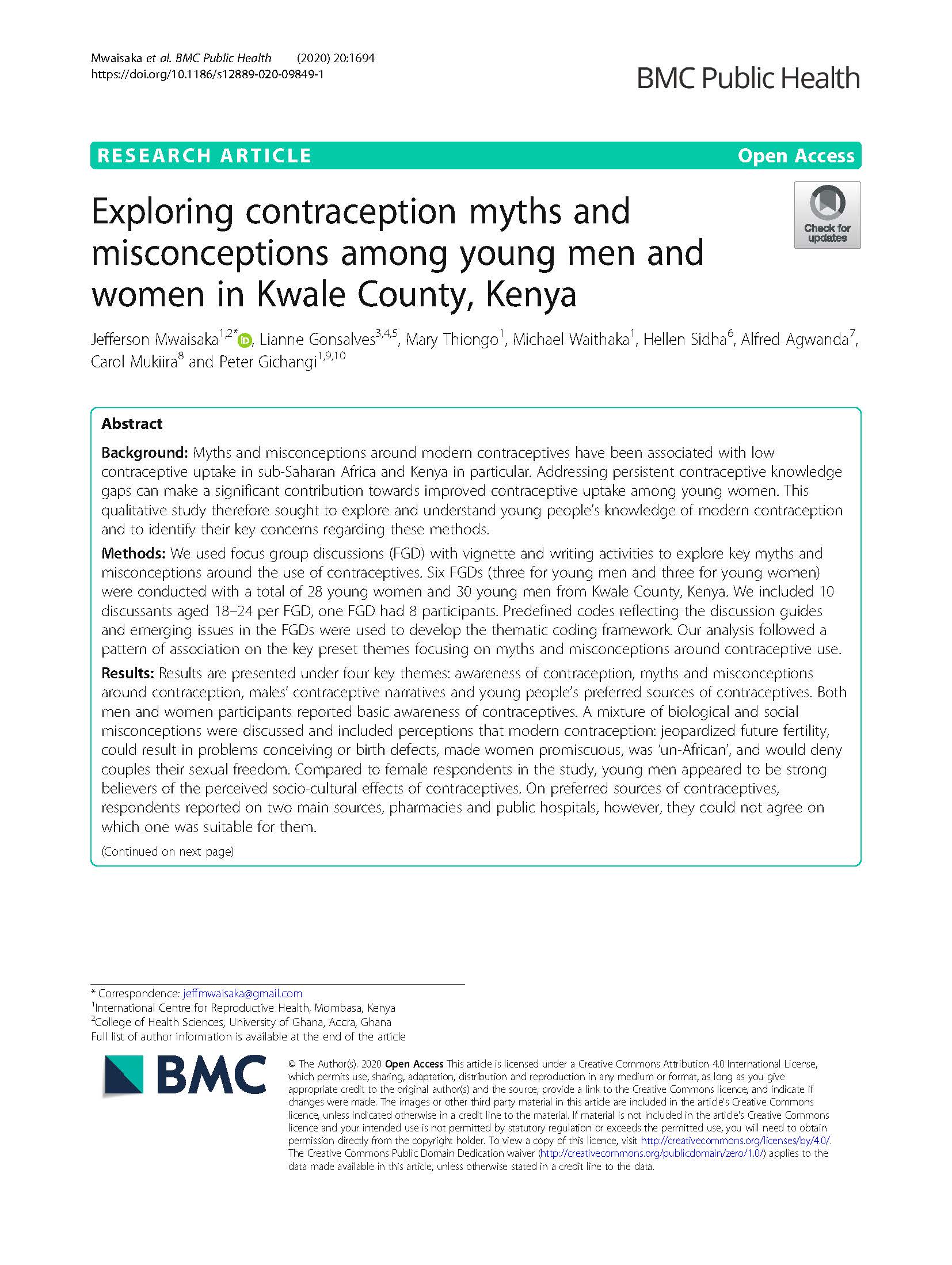
Myths and misconceptions around modern contraceptives have been associated with low contraceptive uptake in sub-Saharan Africa and Kenya in particular. Addressing persistent contraceptive knowledge gaps can make a significant contribution towards improved contraceptive uptake among young women. This qualitative study therefore sought to explore and understand young people’s knowledge of modern contraception and to identify their key concerns regarding these methods.
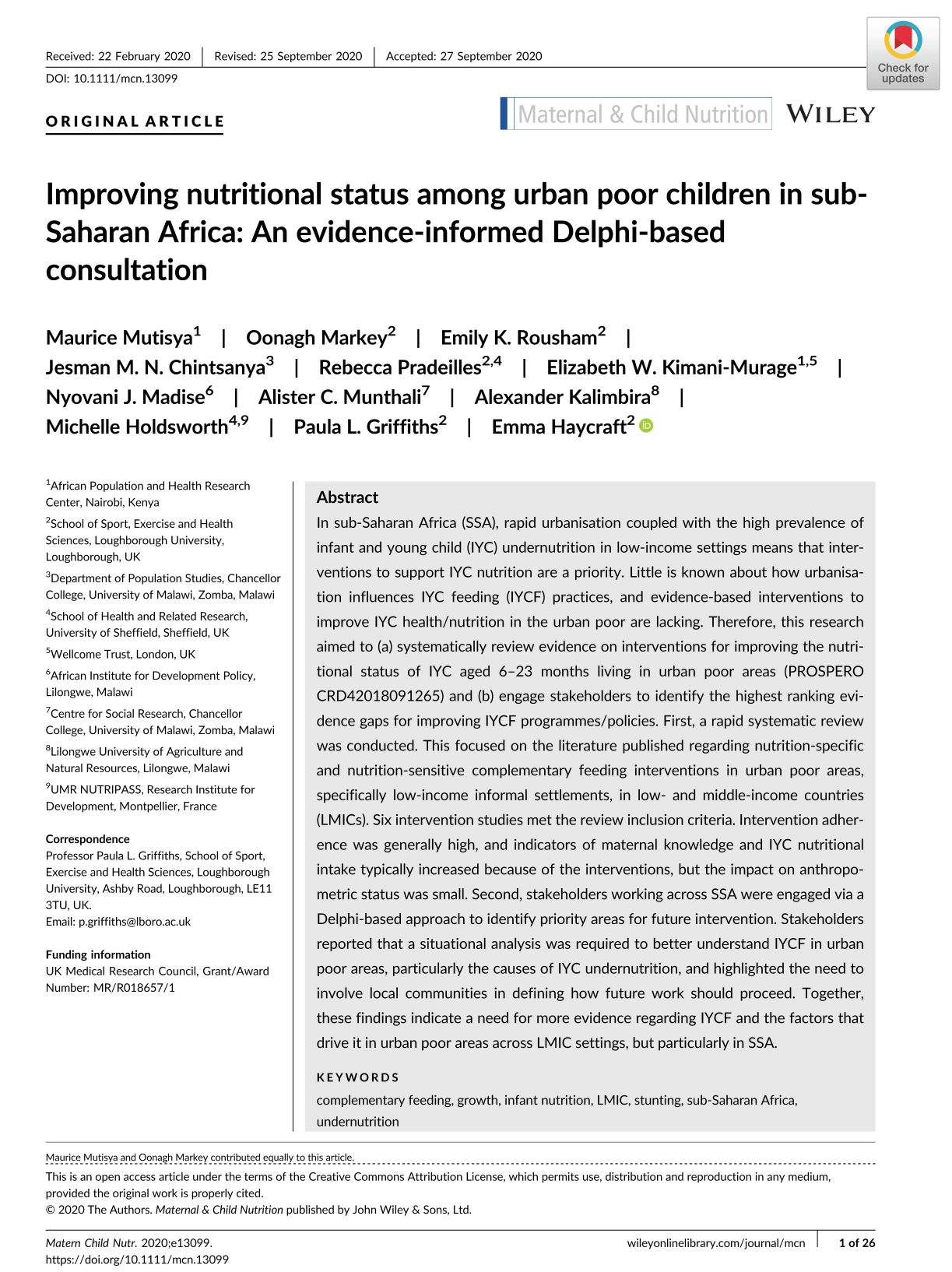
In sub‐Saharan Africa (SSA), rapid urbanisation coupled with the high prevalence of infant and young child (IYC) undernutrition in low‐income settings means that interventions to support IYC nutrition are a priority. Little is known about how urbanisation influences IYC feeding (IYCF) practices, and evidence‐based interventions to improve IYC health/nutrition in the urban poor are lacking. Therefore, this research aimed to (a) systematically review evidence on interventions for improving the nutritional status of IYC aged 6–23 months living in urban poor areas (PROSPERO CRD42018091265) and (b) engage stakeholders to identify the highest ranking evidence gaps for improving IYCF programmes/policies.
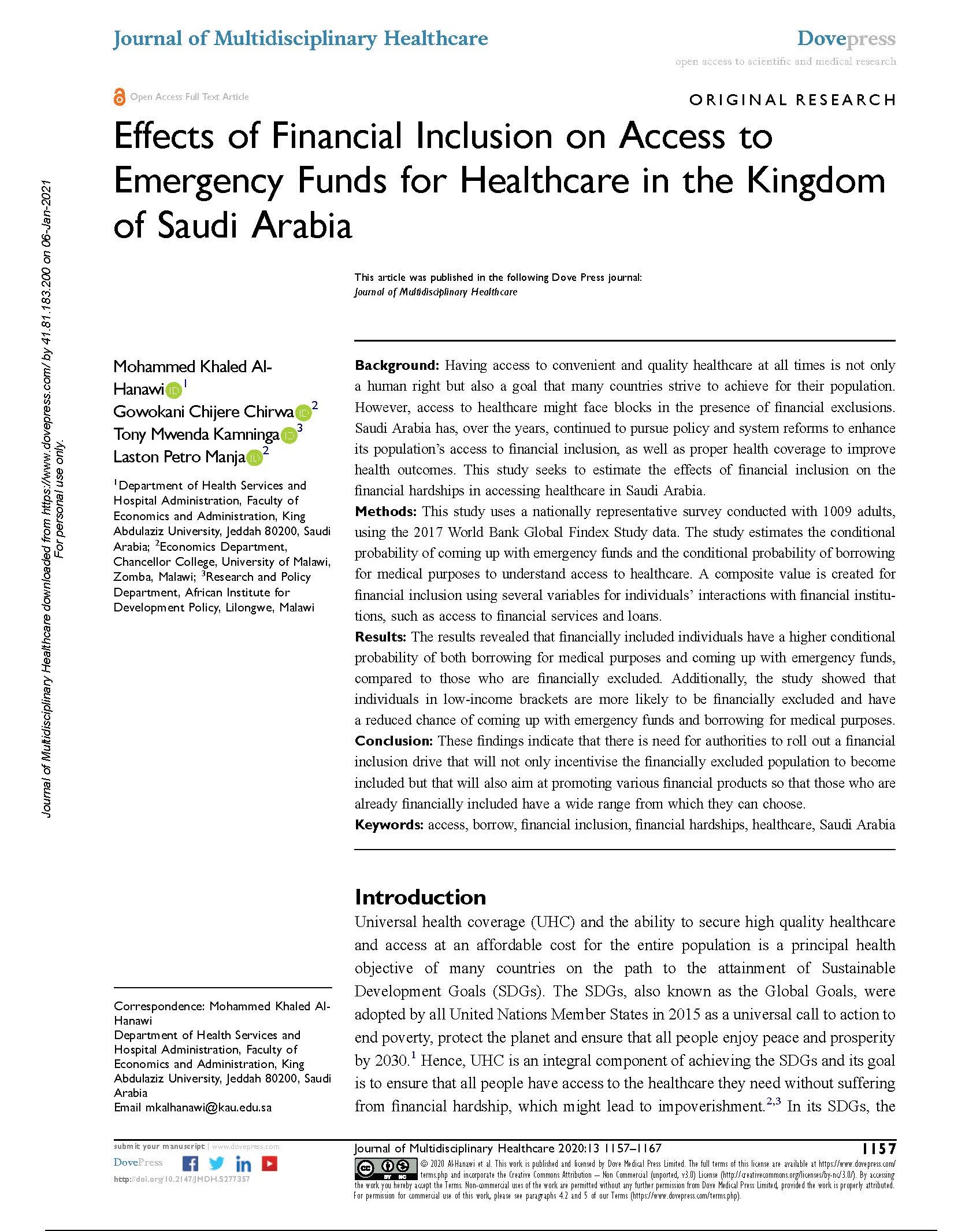
Having access to convenient and quality healthcare at all times is not only a human right but also a goal that many countries strive to achieve for their population. However, access to healthcare might face blocks in the presence of financial exclusions. Saudi Arabia has, over the years, continued to pursue policy and system reforms to enhance its population’s access to financial inclusion, as well as proper health coverage to improve health outcomes. This study seeks to estimate the effects of financial inclusion on the financial hardships in accessing healthcare in Saudi Arabia.
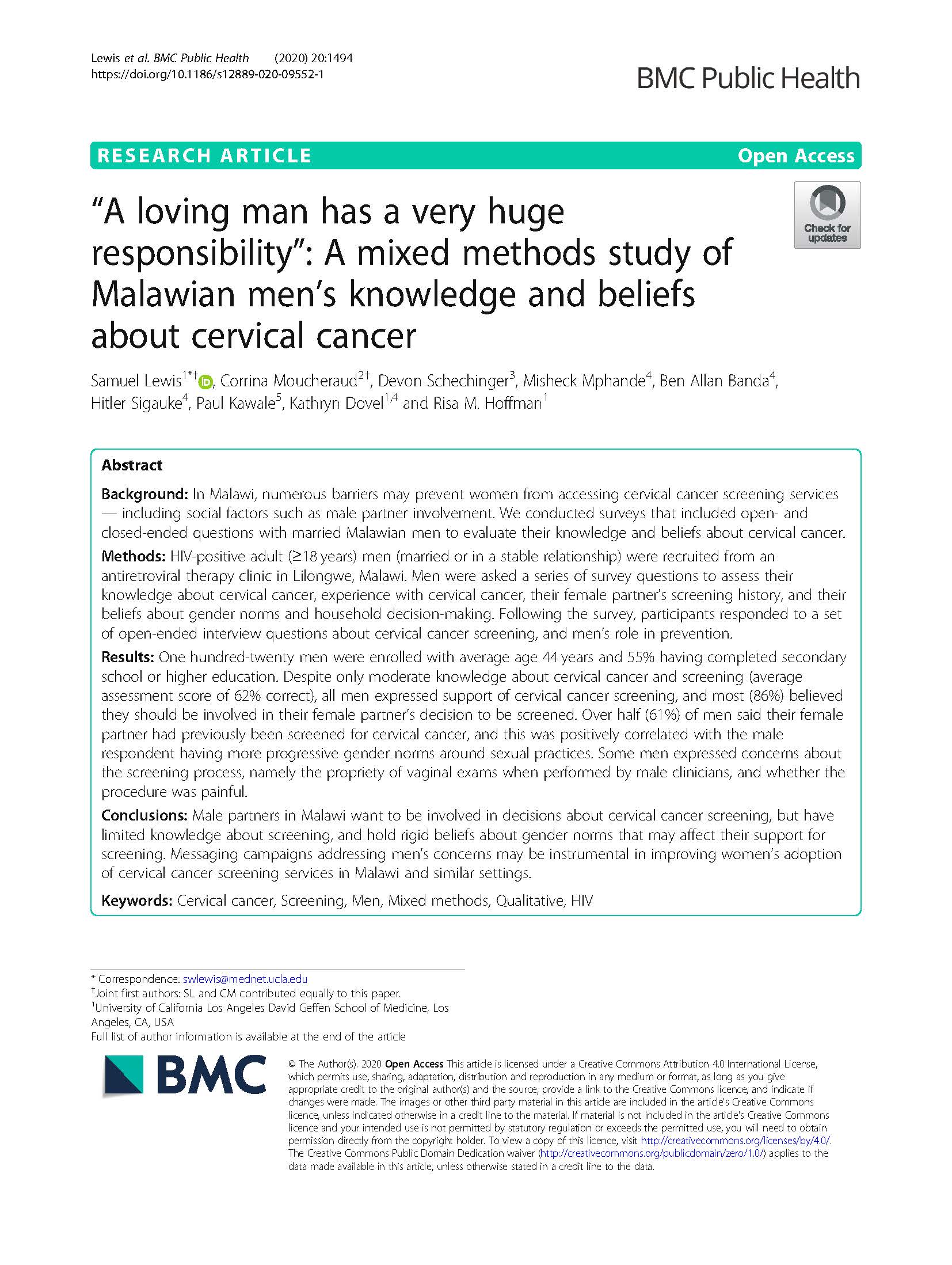
In Malawi, numerous barriers may prevent women from accessing cervical cancer screening services — including social factors such as male partner involvement. The study presents surveys conducted that included open- and closed-ended questions with married Malawian men to evaluate their knowledge and beliefs about cervical cancer. Majorly the study found that male partners in Malawi want to be involved in decisions about cervical cancer screening, but have limited knowledge about screening, and hold rigid beliefs about gender norms that may affect their support for screening.
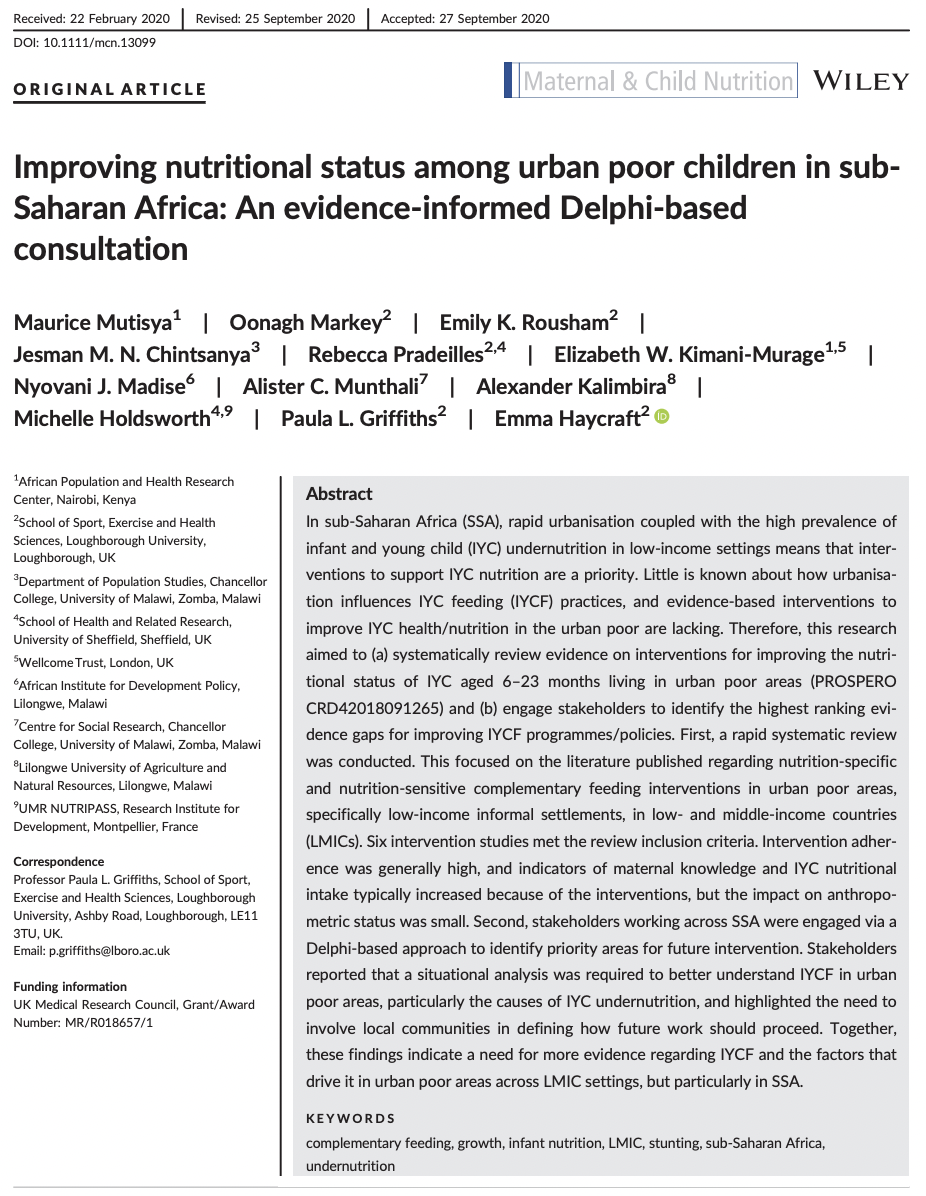
Stunting, caused by long-term undernutrition, is a significant global health concern (UNICEF, 2020; World Health Organization [WHO], 2012). Stunted children experience impaired growth and development with lifelong consequences on morbidity and mortality (Black et al., 2008). Suboptimal complementary feeding, including inappropriate timing of introduction of semi-solid and solid foods, is associated with stunting in low- and middle-income countries (LMICs) (Marriott, White, Hadden, Davies, & Wallingford, 2012). You can access the full article here: https://onlinelibrary.wiley.com/doi/pdf/10.1111/mcn.13099 Authors: Maurice Mutisya, Oonagh Markey, Emily K Rousham, Jesman MN Chintsanya, Rebecca Pradeilles, Elizabeth W Kimani‐Murage, Nyovani J Madise, Alister C Munthali, Alexander Kalimbira, Michelle Holdsworth, […]
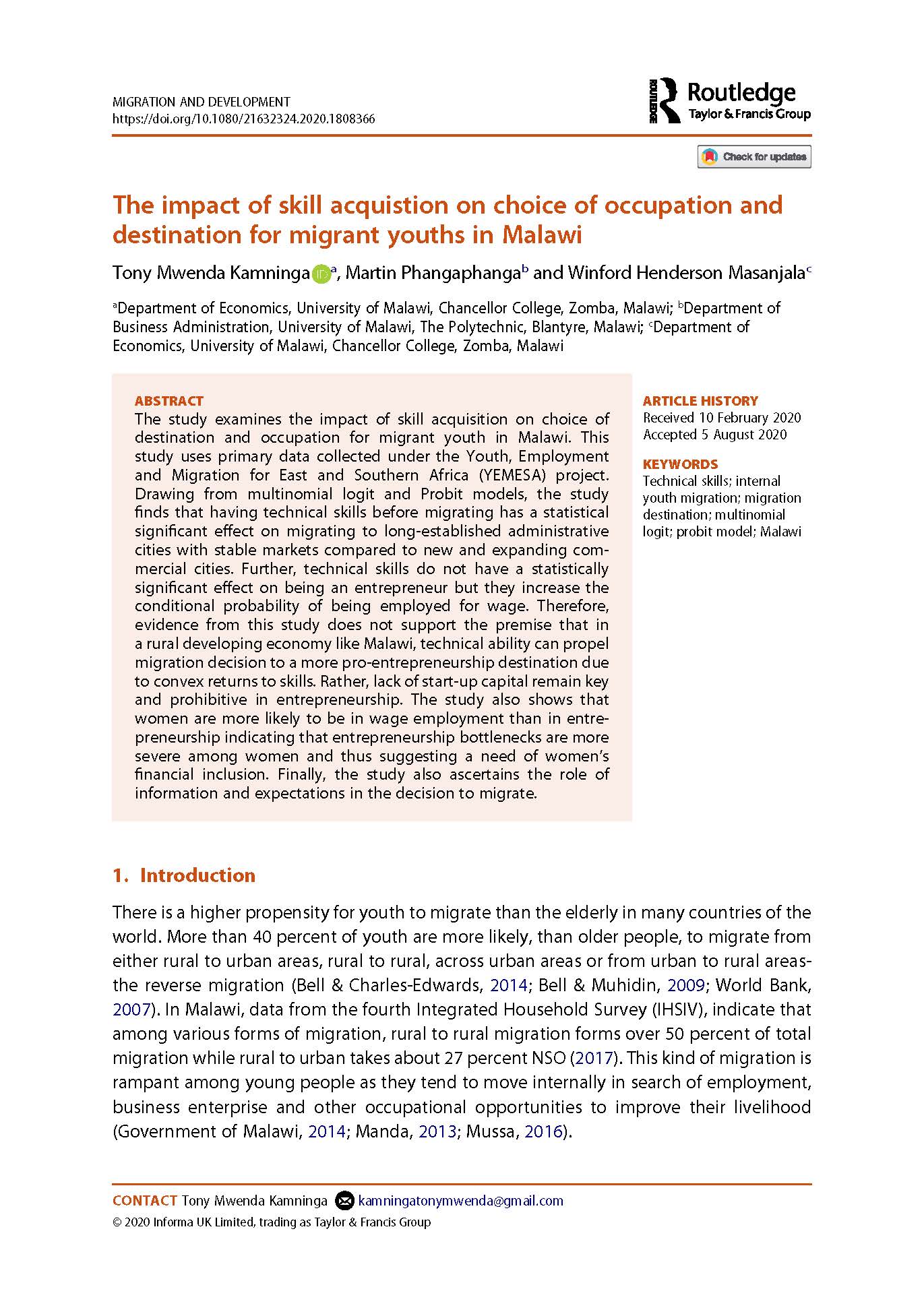
The study examines the impact of skill acquisition on choice of destination and occupation for migrant youth in Malawi. This study uses primary data collected under the Youth, Employment and Migration for East and Southern Africa (YEMESA) project. Drawing from multinomial logit and Probit models, the study finds that having technical skills before migrating has a statistical significant effect on migrating to long-established administrative cities with stable markets compared to new and expanding commercial cities.
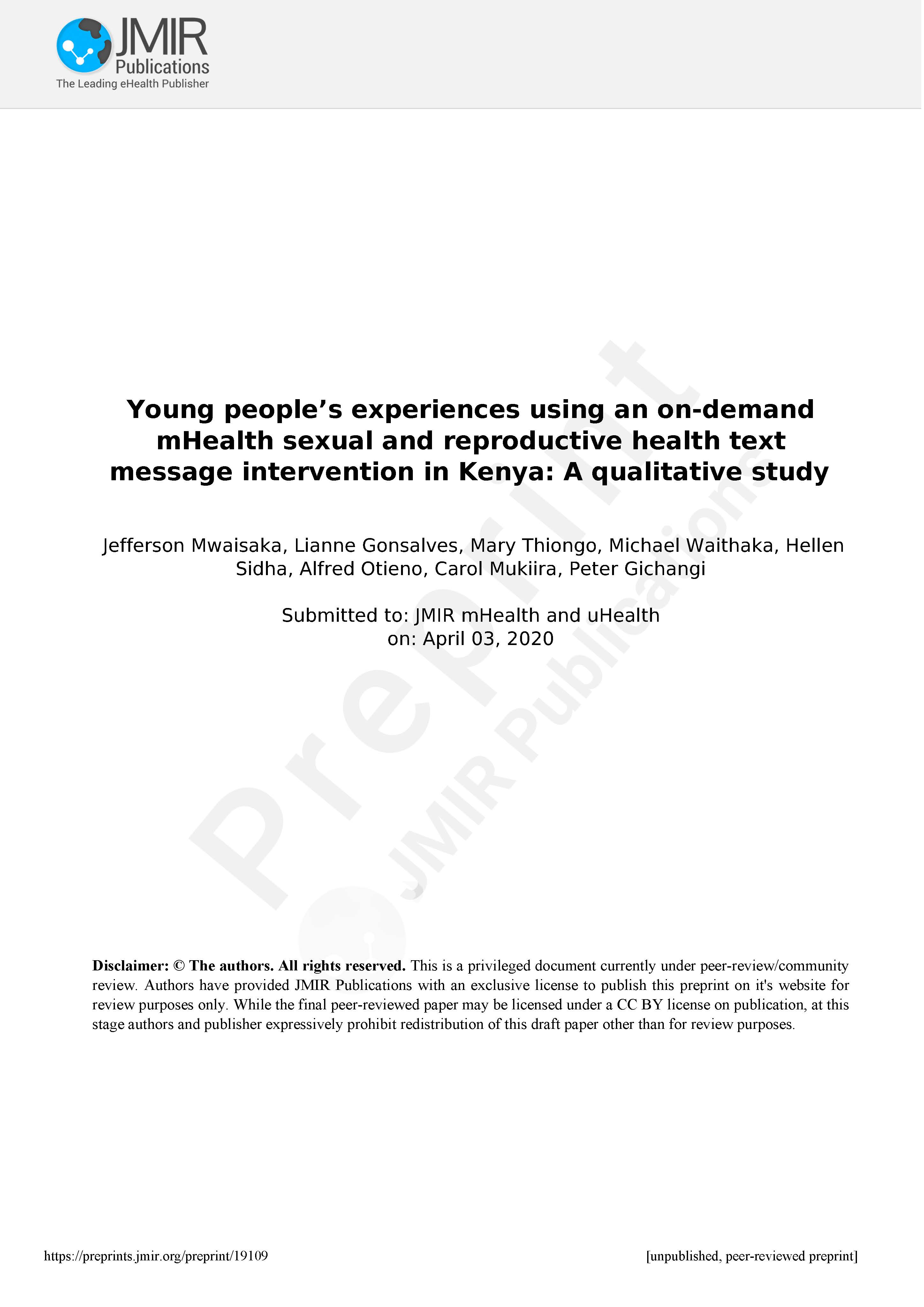
The objective of our study was to explore young people’s experiences using an on-demand sexual and reproductive health mHealth platform in Kenya. Digital health usability assessments can help explain how mHealth applications targeting young people with sexual and reproductive health information performed and whether or not the intended purpose was achieved. Few digital health assessments have however been conducted to evaluate young people’s perceptions regarding mHealth system interactions and content relevance on a wide range of sexual and reproductive health (SRH) topics.
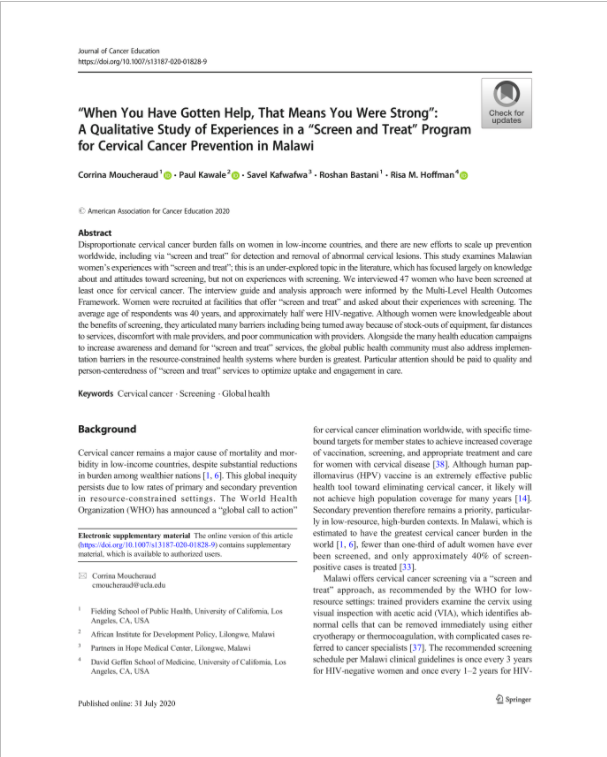
Disproportionate cervical cancer burden falls on women in low-income countries, and there are new efforts to scale up prevention worldwide, including via “screen and treat” for detection and removal of abnormal cervical lesions. This study examines Malawian women’s experiences with “screen and treat”; this is an under-explored topic in the literature, which has focused largely on knowledge about and attitudes toward screening, but not on experiences with screening.
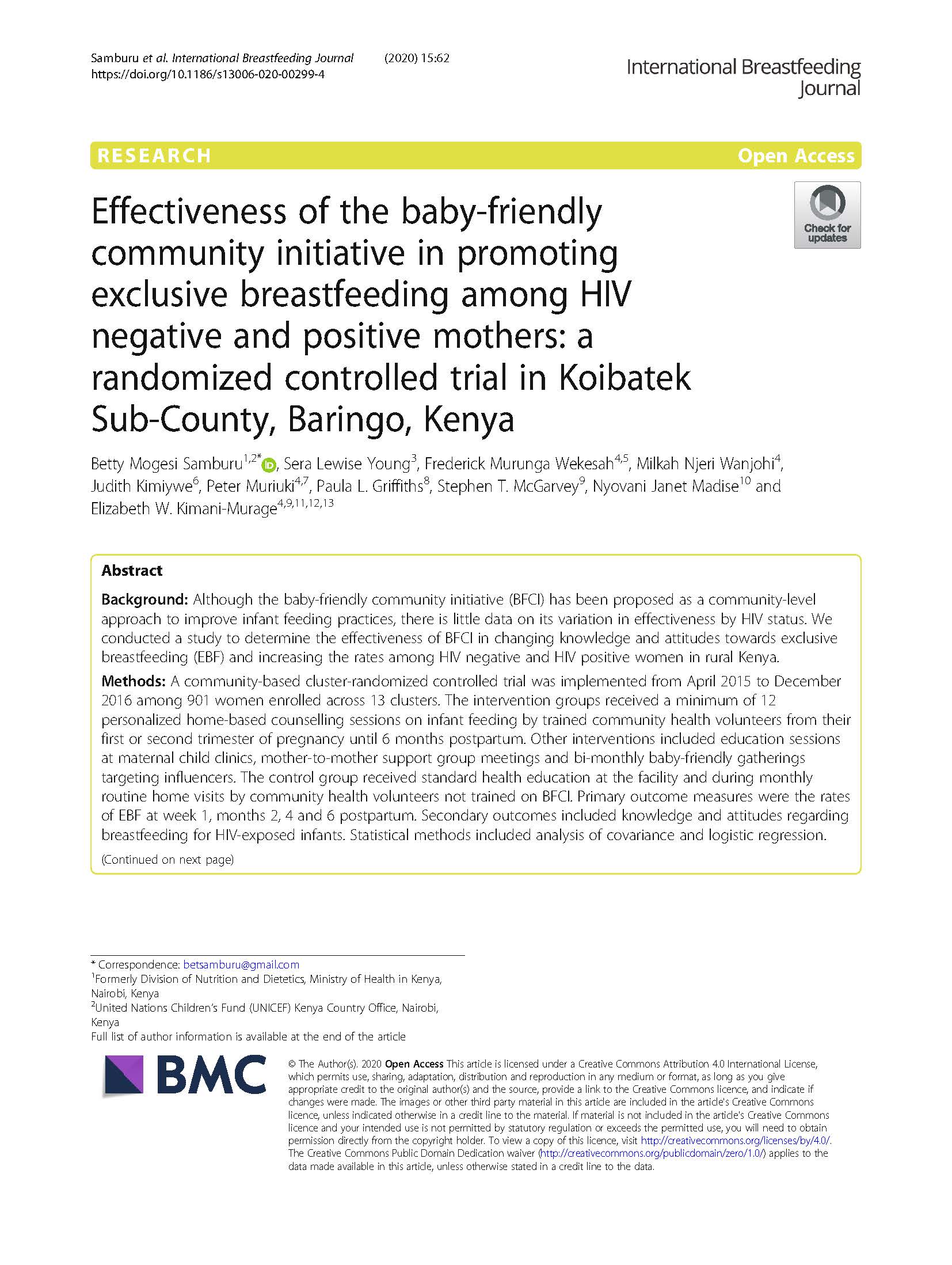
Although the baby-friendly community initiative (BFCI) has been proposed as a community-level approach to improve infant feeding practices, there is little data on its variation in effectiveness by HIV status. This study was to determine the effectiveness of BFCI in changing knowledge and attitudes towards exclusive breastfeeding (EBF) and increasing the rates among HIV negative and HIV positive women in rural Kenya. The study found that BFCI interventions can complement facility-based interventions to improve exclusive and continued breastfeeding knowledge, attitudes, and behaviours among HIV negative and positive women
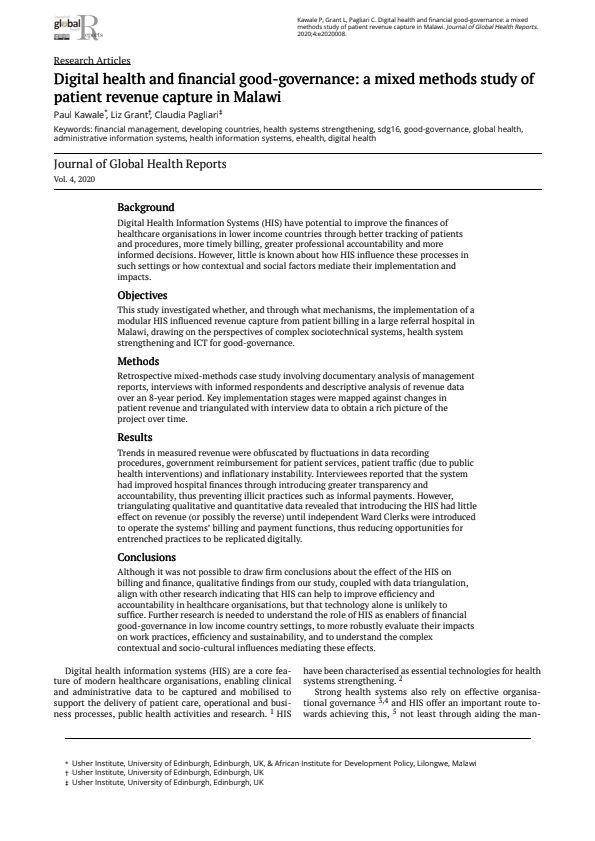
Digital Health Information Systems (HIS) have potential to improve the finances of health-care organisations in lower income countries through better tracking of patients and procedures, more timely billing, greater professional accountability and more informed decisions. However, little is known about how HIS influence these processes in such settings or how contextual and social factors mediate their implementation and impacts. This study investigated whether, and through what mechanisms, the implementation of a modular HIS influenced revenue capture from patient billing in a large referral hospital in Malawi, drawing on the perspectives of complex socio-technical systems, health system strengthening and ICT for good-governance.
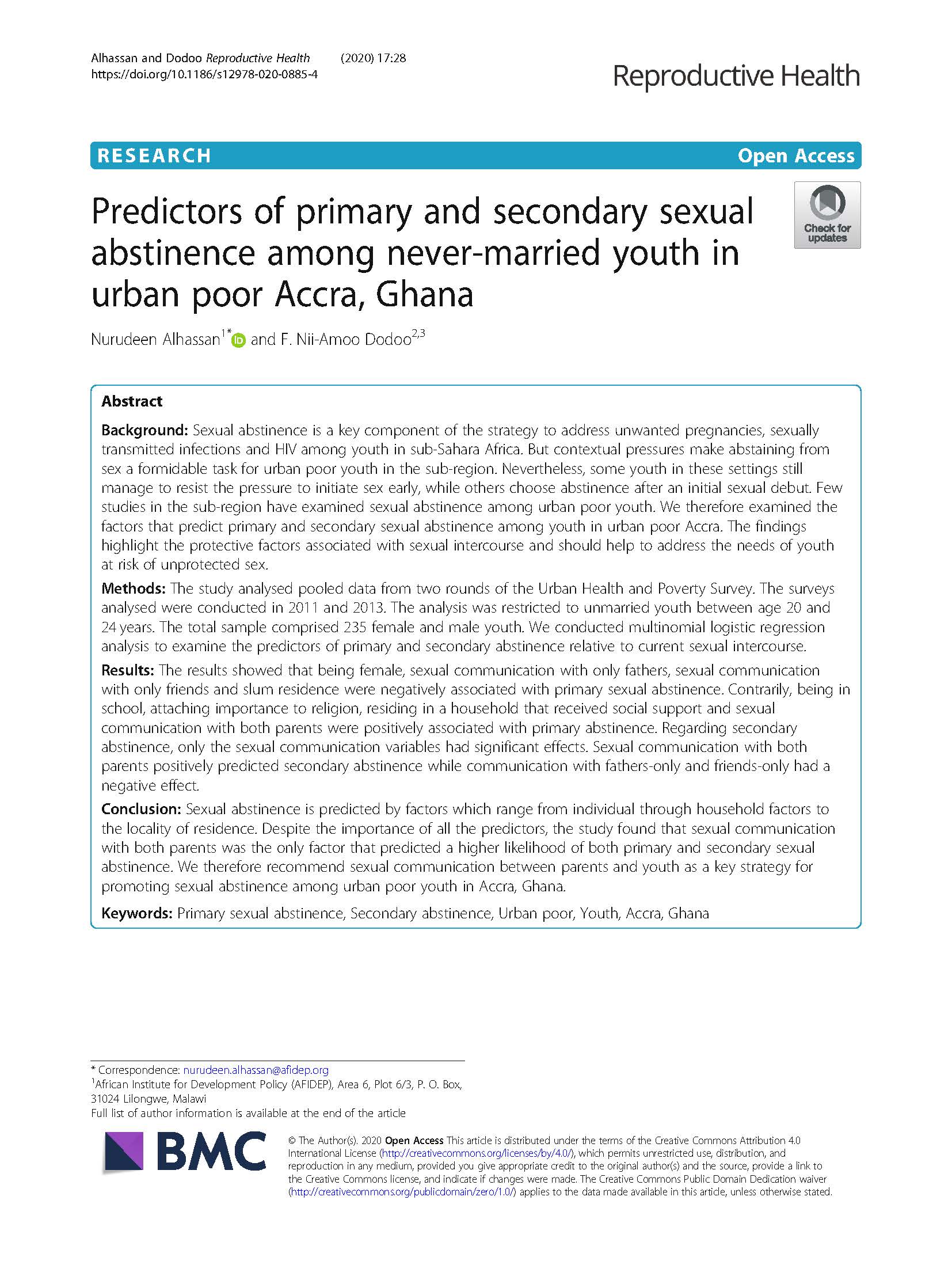
Sexual abstinence is a key component of the strategy to address unwanted pregnancies, sexually transmitted infections and HIV among youth in sub-Sahara Africa. But contextual pressures make abstaining from sex a formidable task for urban poor youth in the sub-region. Nevertheless, some youth in these settings still manage to resist the pressure to initiate sex early, while others choose abstinence after an initial sexual debut. Few studies in the sub-region have examined sexual abstinence among urban poor youth. The study therefore examined the factors that predict primary and secondary sexual abstinence among youth in urban poor Accra. The findings highlight […]

